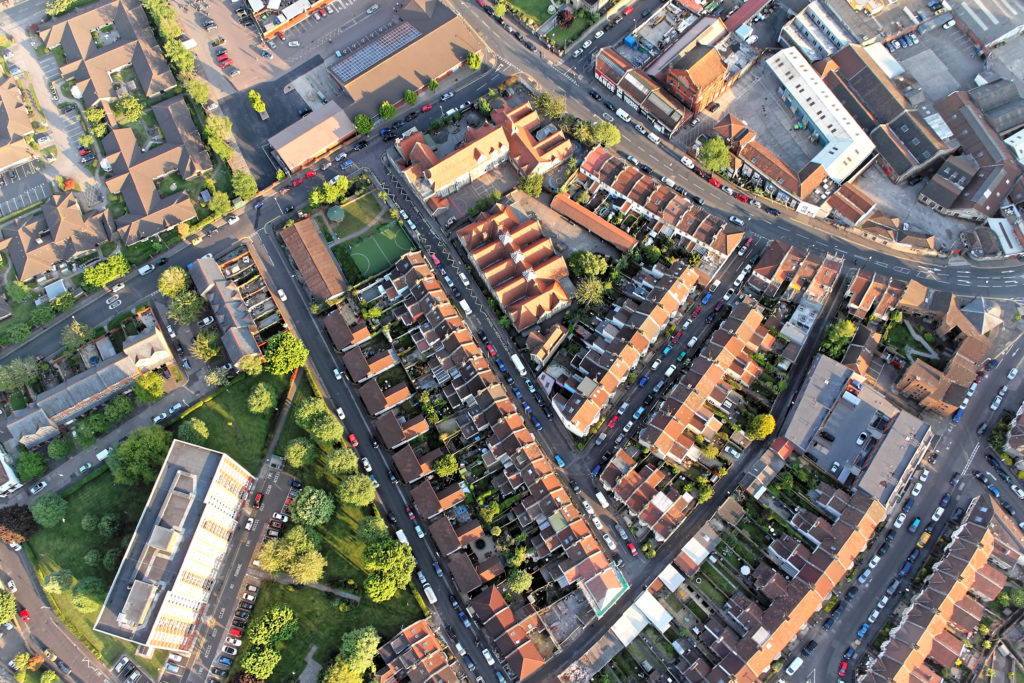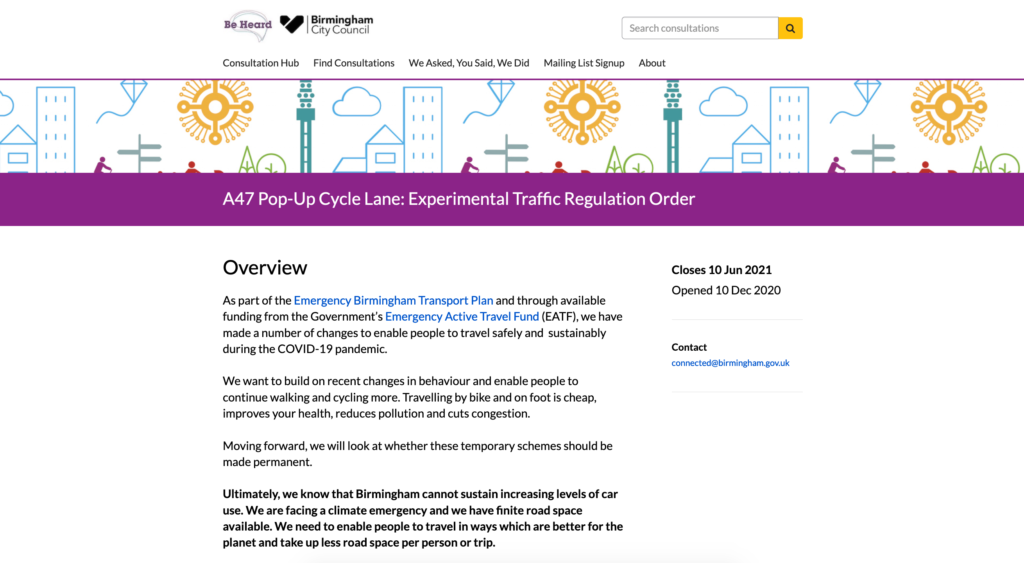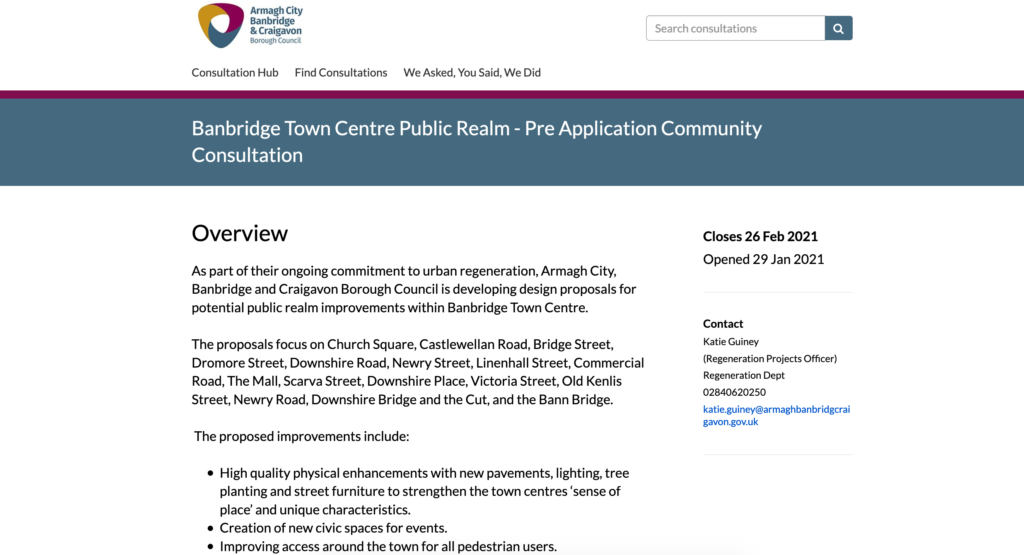
Spatial policy decisions are exceptionally varied. Look through the 1000+ consultations open on the Citizen Space Aggregator and you’ll see a huge range, from a planning framework for an entire nation to whether a temporary cycle lane, implemented in response to COVID-19, should be made permanent.
Customers are using Citizen Space to engage with their citizens effectively and at scale. Delib’s new product, Citizen Space Geospatial, allows users to take their place-based engagement to the next level by adding interactive geospatial capability throughout their Citizen Space activity. Find out more about it.
Here are a few consultations that demonstrate the broad scope of place-based engagement on Citizen Space.
The Scottish Government

The Scottish Government is getting ready to draft its fourth National Planning Framework (NPF4), which will form a baseline for Scottish planning decisions up until 2050. The framework itself hasn’t been written yet. Rather, this consultation seeks views on four key outcomes, all heavily focussed on reducing carbon emissions, that the Scottish Government expects will underpin the framework when it is drafted.
The current National Planning Framework, NFP3, was only adopted in 2014 but global crises, a pandemic, Brexit and new pledges to reach net zero by 2050 necessitate new and adaptible ways of thinking.
Why it’s good: NPF4 hasn’t been drafted yet, but it’s already undergoing its second round of engagement, with more to follow. As it should – the National Planning Framework affects every part of Scottish life, and so Scottish people should be involved at every stage of NPF4’s development.
Birmingham City Council

Like many councils, Birmingham made some changes to the city’s transport network, such as putting in temporary cycle routes to make it easier for residents to get around in a pandemic. The legal paperwork for making changes to streets and the way traffic moves through them is called a Traffic Regulation Order (TRO); when the measures are temporary or being trialled, it’s called an Experimental Traffic Regulation Order, which is what’s in use here. Experimental TROs can accept comments/objections over a period of 6 months to assess whether or not the scheme is working. Birmingham CC are seeking comments on the reallocation of road space to make more room for cyclists on two roads.
Why it’s good: I really like the fact bank that explains the consultation process surrounding TROs, as it can be pretty confusing to the average user. Birmingham recognises that COVID-19 and the climate emergency mean that reliance on cars cannot increase, so they are clear that these Experimental TROs may become permanent after the 6-month window for comments closes.
Armagh City, Banbridge & Craigavon Borough Council

Armagh City, Banbridge & Craigavon Borough Council has such a good acronym: ACBCBC. ACBCBC are proposing a big project with the aim of improving the Banbridge town centre. Proposed changes include tree planting, new pavements, and better pedestrian walkways. Because the proposals would be a major project, the council has a statutory duty to engage citizens before the planning application is formally submitted.
Why it’s good: Embedded in the body of the consultation is a PDF version of what would otherwise be a physical public display board – a good example of how online consultation is especially useful at times like this. I like that the council have explained clearly what Pre-Application Community Consultation is and the associated statutory requirements.
Read more about Citizen Space Geospatial.
Or, to find out what it can do for your organisation, book a demo and we’ll walk you through it.